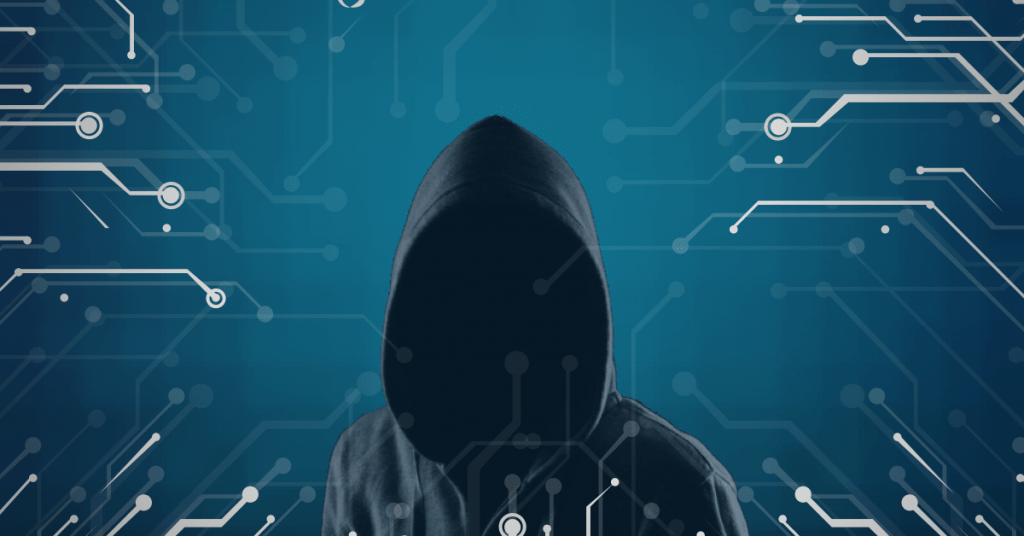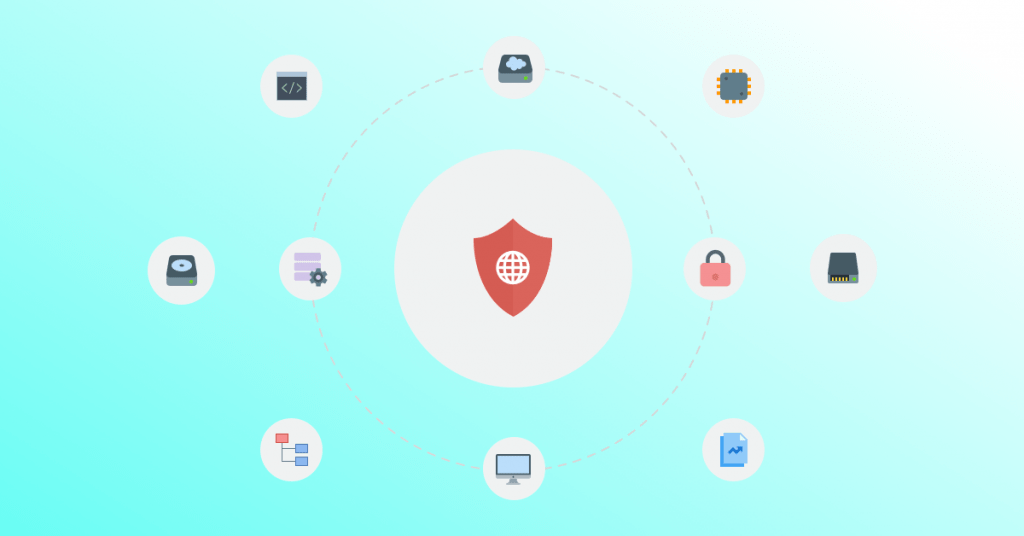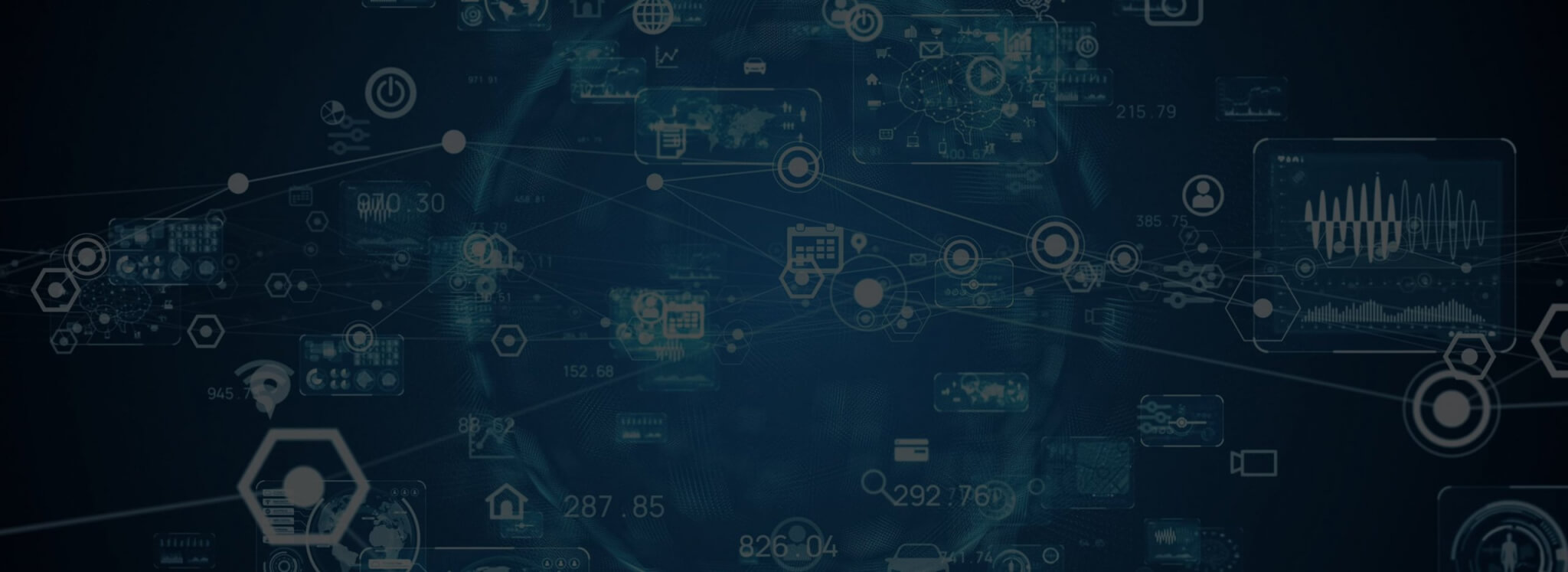”If you spend more on coffee than on IT security, you will be hacked.
Richard Clarke
What’s more, you deserve to be hacked.”
former White House Cybersecurity Advisor
Are you afraid of becoming a victim of a malicious attack?
Has your business computer network ever been hacked?
Threatened by the idea of losing money, reputation, or even your business? And for good reason!
As the world goes digital, tons of IoT devices are invented yearly, and businesses and people go online, cybersecurity quickly makes its way to the top charts of global concerns.
According to a report by the U.S. Government Accountability Office, since 2006, the number of cyberattacks has grown by 1,300% against the government in the USA alone. The rest of the world keeps pace by being exposed to various software security vulnerabilities and threats in cyberspace.
The forecasts are dismal. Gartner predicts that by 2020, 99% of cybersecurity vulnerabilities already known will linger, and 60% of digital businesses will suffer major service failures due to the inability of IT security teams to manage digital risk. In its “2017 Trends to Watch”, Ovum states that in 2017 and years to come, various new cyber threats are going to emerge, and the IT security market will continue to evolve in order to meet them.
So, beware! No matter what size your business is or which industry you represent, you definitely process and keep large amounts of information. Your clients’ and your confidential and sensitive data are always in jeopardy. This data, namely the details of your plans, products, business processes, contracts, and projects, can be compromised or stolen by rival companies. And unfortunately, such incidents occur quite often.
The Fallout of Cybersecurity Failures
According to a Cisco survey, most companies tend to underinvest in cybersecurity, and later they face the consequences of this omission.
The ramifications of failing to deal with cyber threats may be numerous, unpredictable, and immense, going far beyond the IT infrastructure of the company and transcending money matters. These are only some of the possible repercussions:
- Great revenue losses;
- High remediation costs (i.e., costs of incident response, internal audits, investigations, etc.);
- Lost assets;
- Decreased productivity;
- Increased scrutiny from regulators and bankers;
- Regulatory fines and litigation;
- Lawsuits filed by affected customers;
- Significant business risks;
- Reputation and brand damage;
- Loss of competitive position in the market;
- And, most importantly, – customer trust erosion, which ultimately catalyzes the loss of business at large.

Hopefully, we didn’t intimidate you with these examples too much. We just want to emphasize: You cannot ignore cybersecurity threats anymore and need to set up firm security foundations in your company or organization to prevent them.
Benefits Provided by Cybersecurity
It is safe to say that the more cybersecurity activities are incorporated into your daily business activities and your company strategy, the better. An overall systematic and holistic cybersecurity approach is beneficial to your whole business, so efforts make sense.
Let’s say you’ve set up good cyber protection to safeguard your data. What then? Congratulations! Now you possess a pretty large set of advantages to move your business forward. These are just some of them:
1. Decreased costs. Now you have fewer (if any!) costs related to security incidents because these will rarely or never occur (by the way, the average cost of a cybersecurity breach is large). In most cases, a cybersecurity investment is far less than any short-term savings achieved by ignoring the problem. So, security is a money saver and ensures ROI.
2. Competitive advantage and strong customer trust. Cybersecurity excellence makes companies stand out among their competitors.
- Firstly, due to the increased level of cybersecurity, you are protected against cyber espionage. Thus, all your company’s know-how, intellectual property, and customer relationship information are safe.
- Secondly, owing to clearly defined data safety policies and procedures and, as a great plus, your company’s certification (e.g., ISO/IEC 27001) your current clients are confident that you can protect confidentiality, integrity, and availability of their data.
- You can also prove to your prospects who are sensitive about cybersecurity that you will protect their information better than your competitors. Thus, they will be more likely to trust you and be readier for longer-term relationships.
3. Business process optimization. A good set-up cybersecurity system primarily implies clearly defined working procedures and processes. As a result of security covering all aspects of your company, your business becomes much better organized. Besides, all company operations, processes, and business functions move onto a single, re-engineered digital operating model, which streamlines your digital transformation.
4. Business growth enablement. Cybersecurity boosts your innovative capabilities and, thus, helps you go forward. Cybersecurity excellence is a driver of business value and progress. On the contrary, inadequate cybersecurity impedes innovation.
5. Meeting regulatory compliance. By following security requirements and standards and keeping your clients’ data safe, you can be confident of your compliance with all relevant laws, regulations, and requirements and be secure from lawsuits and fines.

Cybersecurity Plan
As you see, the benefits of cybersecurity are significant. However, you may ask: Is it easy to oppose hackers and intruders?
Of course, not! Setting up cybersecurity is not as easy as 1-2-3. It is a comprehensive and never-ending process. Moreover, it is not merely a matter of technology, which accounts for less than half of the total security investment. To be efficient, the measures must combine:
- Provision of all necessary technologies (software, equipment, etc.);
- Elaboration and regular updates of policies and procedures;
- Training of current and new staff members;
- Persistent awareness-building among all stakeholders.
Dmitry DNEPROVSKY, Information Security Manager, Softengi: “Our team at Softengi is firmly confident that a strong cybersecurity system is a requirement, rather than an option, for every company. Therefore, we persistently implement all possible cybersecurity procedures and keep track of current cybersecurity trends. We also follow existing information security and cybersecurity standards. It is our strategic task, as our clients’ business process digitalization is impossible without their confidence in the security of their data.”
Follow our Blog to get more details about the implementation of our cybersecurity system at Softengi. We are preparing a series of posts devoted to every aspect of the cybersecurity system in our company: application security, network security, endpoint security, protection against social engineering attacks, cloud security, etc. So, stay tuned!
Summary
Recently, there has been a noticeable trend of large and small businesses moving towards digital transformation. You cannot deny that doing this is of strategic importance for everyone, especially in today’s increasingly digitalized world. To be successful, digital transformation requires a strong cybersecurity foundation. Companies that manage to achieve cybersecurity excellence have every chance to gain a competitive advantage: they innovate faster and swiftly respond to rapidly changing market demands.
Would you like to find out how cybersecurity initiatives could help your own business? Send us a request to [email protected]




